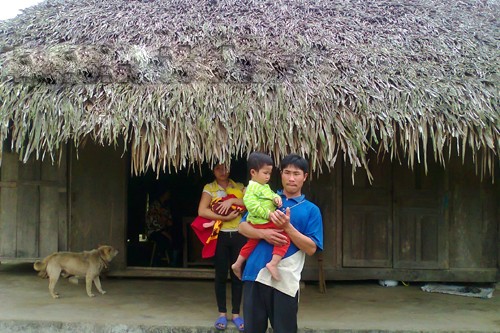- Project Name: Improving income and enhancing capacity for Women through Credit and Saving activities.
- Our partner: Women’s Union in Huong Son (Huong Son Womens’ Union), Ha Tinh Province, Vietnam
- Project size: 50.000 €
- Period: 2015-2016
The project area is located in the northern part of Vietnam, about 400 km south of the capital Hanoi, about 70 km from the border with Laos. There should be small loans and previously prepared and focused on its independent activities in four particularly poverty-stricken communities of 150 eligible women.
The Women’s Union in Huong Son has existed since 1930 and has about 2,500 members. We want to be active in the area of Son Trung, Son Le, Son Tien, Son Diem, mostly operate in agricultural (livestock) and small craft . The area is poor, especially women have few opportunities to earn an income. The Women’s Union has done in the past, micro-credit programs and was able to show good results.
We want to give women the opportunity, especially to invest in livestock. They are trained professional, commercial skills and investments and financed through low-interest loans. With the training we want to ensure that species meet the animals are reared. The goal is those families can adequately feed themselves and achieve the marketing of surplus income that are above the poverty line. Appropriate insurance against production or loss of earnings from natural disasters to make the audience less vulnerable.

Why are we involved in Vietnam?
Vietnam has succeeded in recent years to reduce poverty by about 50% to about 12% today. Nevertheless, there are in the country, especially in remote, only very partially covered by the general economic development of areas some considerable poverty. In the past in our project area villages, the poverty rate average of 18% (€ 15 pm per person) is, 25% if adding almost poor (“near poor people” – € 20 pm per person) – and are thus comparatively very poor.
There are also some natural conditions aggravated by climate change (long droughts, replaced by floods).
The husbands in these villages have no employment, from which they can feed their families adequately.
Many women want to contribute to the meager family income by predominantly independent work; the necessary funds are set out by the few operating in the region banks and other financial institutions, or only with a high interest rate. Lack of access to finance remains an obstacle.

